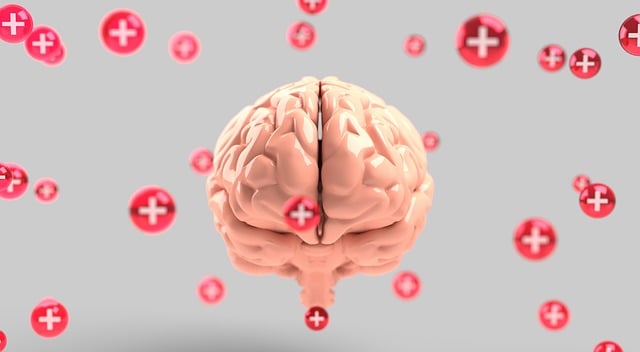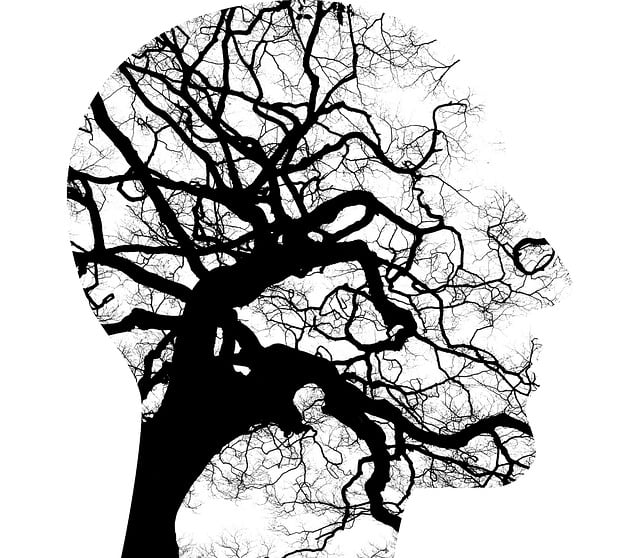Social Skills Training and Trauma Support Services tailored for Mandarin Chinese-speaking young adults with mental health conditions are crucial, addressing cultural barriers and language proficiency issues. Evidence-based practices like CBT and IPT enhance communication skills, self-confidence, and coping mechanisms. Cultural sensitivity, focusing on family dynamics and non-verbal cues, ensures safe spaces for emotional processing. Accessing these services is challenging due to stigma and a lack of specialized resources, but community outreach programs and non-profit groups offer culturally competent solutions, empowering young adults with valuable self-care practices while respecting their cultural identities.
Social skills training is a powerful tool for young adults navigating mental health conditions, especially those from the Mandarin-speaking community. This comprehensive guide explores the significance of social support in their healing journey. We delve into the unique challenges faced by this demographic and present evidence-based therapies tailored to address social anxiety and depression. Furthermore, cultural sensitivity in training programs is emphasised to ensure effective, inclusive care. With a focus on accessibility, we provide resources and guidance for Mandarin Chinese speaking young adults seeking therapy, offering a roadmap to better mental health.
- Understanding Social Skills Training: A Vital Component of Mental Health Support for Young Adults
- The Unique Challenges Faced by Mandarin Chinese Speaking Young Adults with Mental Health Conditions
- Evidence-Based Therapies for Social Anxiety and Depression in this Demographic
- Incorporating Cultural Sensitivity into Social Skills Training Programs
- Accessing Effective Therapy: Resources and Support for Mandarin Chinese Speaking Young Adults
Understanding Social Skills Training: A Vital Component of Mental Health Support for Young Adults

Social Skills Training is a powerful tool that plays a crucial role in supporting young adults with mental health conditions, especially those who may face additional challenges due to cultural differences or language barriers like Mandarin Chinese-speaking individuals. This type of therapy focuses on teaching and enhancing communication strategies, which are essential for navigating social interactions and building meaningful connections. By learning effective communication techniques, young adults can improve their relationships, boost self-confidence, and develop better coping mechanisms.
For Mandarin Chinese-speaking young adults seeking mental health support, specialized services that combine cultural sensitivity with evidence-based practices are ideal. Trauma Support Services tailored to this demographic recognize the impact of trauma and offer safe spaces for processing emotions while incorporating cultural nuances. Additionally, Self-Care Practices can be taught to promote overall well-being, ensuring individuals have a comprehensive toolkit for managing their mental health effectively in both personal and social contexts.
The Unique Challenges Faced by Mandarin Chinese Speaking Young Adults with Mental Health Conditions

Mandarin Chinese speaking young adults with mental health conditions often encounter unique challenges due to cultural and language barriers. Accessing appropriate therapy, particularly specialized services catering to their linguistic needs, can be a significant hurdle in seeking help. The stigma surrounding mental health issues within some Asian communities may also deter them from openly discussing their struggles, hindering early intervention and effective treatment.
These young adults require tailored support that considers both cultural nuances and language proficiency. Public Awareness Campaigns Development and Stress Management Workshops Organization can play crucial roles in destigmatizing mental health discussions among Mandarin-speaking populations. Moreover, empowering individuals to develop self-care routines for better mental health becomes even more vital when addressing these specific challenges, ensuring they receive the necessary care and support.
Evidence-Based Therapies for Social Anxiety and Depression in this Demographic

For young adults speaking Mandarin Chinese, evidence-based therapies offer a lifeline in navigating social anxiety and depression. Cognitive Behavioral Therapy (CBT), a well-researched approach, focuses on identifying and changing negative thought patterns and behaviors that contribute to social avoidance. By teaching coping skills development through structured techniques like mindfulness exercises and gradual exposure to social situations, CBT empowers individuals to manage their symptoms effectively.
Additionally, Interpersonal Psychotherapy (IPT) has proven successful in addressing the social isolation often associated with these conditions. IPT helps individuals explore and improve their interpersonal relationships, enhancing communication and social support networks. Integrating self-care routine development for better mental health, such as regular exercise, adequate sleep, and stress management techniques, further strengthens the therapeutic effect. In cases of severe symptoms or crises, crisis intervention guidance is readily available to provide immediate support and de-escalation strategies.
Incorporating Cultural Sensitivity into Social Skills Training Programs

Incorporating cultural sensitivity into social skills training programs is essential when catering to diverse populations, such as young adults speaking Mandarin Chinese who are seeking therapy for mental health conditions. Cultural competence involves understanding and respecting different values, beliefs, and communication styles that shape an individual’s experiences with mental health services. For Mandarin-speaking individuals, this might include recognizing the importance of family dynamics, collective versus individualistic perspectives, and non-verbal cues in their cultural context.
Social skills training should be adapted to address these cultural nuances, ensuring effectiveness and relevance. Mental health professionals play a crucial role in facilitating inclusive environments by conducting thorough risk assessments that consider cultural factors. This enables them to tailor interventions, like community outreach program implementations, that foster emotional intelligence and promote healthy social interactions while respecting and embracing participants’ cultural identities.
Accessing Effective Therapy: Resources and Support for Mandarin Chinese Speaking Young Adults

For Mandarin Chinese speaking young adults seeking therapy, finding culturally competent and accessible resources can be a significant challenge. Mental health services often lack specialized support for this demographic, highlighting the need for tailored interventions. One effective approach is to engage community-based organizations and implement specialized programs.
Many non-profit groups and community outreach programs focus on providing mental health support to diverse youth populations. These initiatives offer not only language-appropriate therapy but also culturally relevant coping strategies. Incorporating conflict resolution techniques and compassion cultivation practices within these programs can empower young adults with valuable skills. By leveraging such resources, Mandarin Chinese speaking individuals can access much-needed therapy while embracing therapeutic methods that resonate with their cultural background.
Social skills training, tailored to address the specific needs of Mandarin Chinese speaking young adults with mental health conditions, emerges as a powerful tool in their therapeutic journey. By incorporating cultural sensitivity and evidence-based therapies, such as those targeting social anxiety and depression, we can significantly enhance access to effective support. Encouraging open dialogue about mental health within this community is vital, ensuring that young adults receive the necessary resources and understanding to navigate their challenges successfully.









